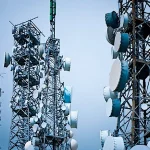Spectranet, Other ISPs Lose Thousands of Subscribers As Nigerians Slash Internet Spending
Top Internet Service Providers (ISPs) in Nigeria — including Starlink, Spectranet, and FibreOne — are grappling with a sharp drop in active users as more Nigerians cut back on internet spending amid...

Top Internet Service Providers (ISPs) in Nigeria — including Starlink, Spectranet, and FibreOne — are grappling with a sharp drop in active users as more Nigerians cut back on internet spending amid rising economic pressures.
Table Of Content
According to fresh data from the Nigerian Communications Commission (NCC), total active users across 127 ISPs fell to 289,369 in Q1 2025, down from 307,946 in Q3 2024 — a loss of nearly 20,000 subscribers within just two quarters.
Starlink, the second-largest ISP in Nigeria, experienced its first subscriber dip since launch, shedding over 6,000 customers, from 65,564 to 59,509. Spectranet, Nigeria’s long-standing market leader, also lost 2,189 users, dropping from 105,441 to 103,252. FibreOne, the third-largest player, saw the steepest decline, plummeting from 33,010 to 19,000 subscribers — a loss of more than 14,000 users.
Why Nigerians Are Ditching ISPs
Analysts attribute the downward trend to rising costs of data, equipment, and electricity — key operational components for ISPs and their customers alike.
“The economic reality has made many homes and businesses prioritize essentials. Subscriptions — especially for premium services like Starlink — are becoming unaffordable,” said Jide Awe, Innovation & Technology Policy Advisor and Founder of Jidaw.com.
Meanwhile, the affordability and flexibility of mobile internet plans have become more attractive to small businesses and individuals, leading many to switch from fixed ISPs to mobile networks.
MNOs Closing in on ISP Turf
President of the Association of Telecommunications Companies of Nigeria (ATCON), Mr. Tony Emoekpere, also pointed to aggressive moves by mobile network operators (MNOs) like MTN and Airtel into the Fiber to the Home (FTTH) space, which was traditionally dominated by ISPs.
“It’s an uneven playing field. MNOs entering core ISP terrain is hurting smaller operators,” Emoekpere said.
The February 2025 tariff hike of up to 50%, approved by the NCC, further widened the cost gap between ISPs and mobile operators. Starlink, for instance, increased its subscription cost from ₦38,000 to ₦57,000, beginning in April — prompting customers like Lagos-based entrepreneur Kelvin Ayodele to switch to cheaper broadband alternatives from mobile carriers.
ISPs vs. MNOs: A Market Divided
Despite having 234 licensed ISPs in Nigeria, only 127 had active customers in Q1 2025. In sharp contrast, mobile operators dominate the market with over 142 million active internet users as of March 2025.
Even with the recent tariff adjustment, mobile internet subscriptions remained relatively stable, dipping only 0.07% to 141.9 million in April.
Path to Survival: Innovation or Extinction?
To remain competitive, analysts suggest that ISPs must urgently rethink their business models.
“ISPs must diversify beyond bandwidth selling. Offering sector-specific solutions for SMEs, healthcare, real estate, and education can unlock new revenue streams,” said Awe.
He also emphasized the importance of improving service quality, exploring green energy alternatives like solar, and embracing emerging technologies for deeper market penetration and customer retention.









No Comment! Be the first one.